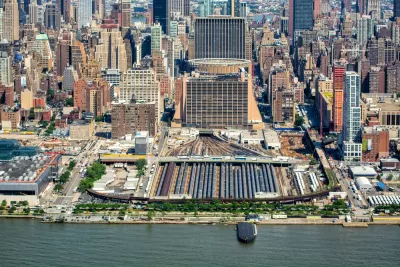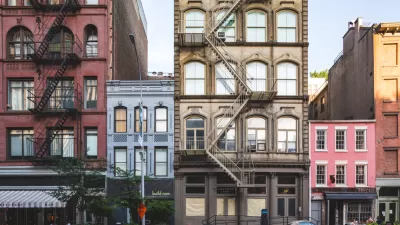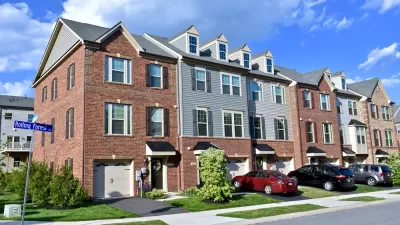Developers have a lot of opinions about how to fix New York's housing market (probably not a surprise) and not all of them consider themselves to be evil (maybe a little bit of a surprise).

"All developers are not alike." So goes the premise of a roundtable discussion of sorts between City Limits staff and nine developers of many varieties in New York City. Not only are developers not all alike in the types of the buildings they seek, they are also motivated by wildly varying politics. One thing they have in common, however: "they share some fundamental understandings of how the housing market should work."
Abigail Savitch-Lew introduces the survey and distills the findings of the discussion. Savitch-Lew surveyed a group of developers for their opinions on New York development—especially the efforts of the de Blasio Administration to rezone large parts of the city to make room for more housing.
The discussion hits on eight main findings of the opinions of this group of developers, as stated in the article:
- Upzoning is the only way to solve the affordability crisis.
- Some of us acknowledge upzonings can exacerbate displacement but in the end we still think they’re in everyone’s interest.
- It’s not like all of us are snapping up land in the potential rezoning areas.
- We’ll definitely build in the gentrifying neighborhoods. East New York, Jerome? Maybe down the line.
- Two things can slow down a neighborhood’s gentrification: strong community resistance and distance from the city core.
- We’ve got an array of feelings about the city’s mandatory inclusionary housing policy.
- If we like MIH, then we love 421-a.
- And there’s a whole lot else the government could be doing
FULL STORY: Eight Things Developers Think About De Blasio’s Rezoning Strategy

Planetizen Federal Action Tracker
A weekly monitor of how Trump’s orders and actions are impacting planners and planning in America.

Maui's Vacation Rental Debate Turns Ugly
Verbal attacks, misinformation campaigns and fistfights plague a high-stakes debate to convert thousands of vacation rentals into long-term housing.

Restaurant Patios Were a Pandemic Win — Why Were They so Hard to Keep?
Social distancing requirements and changes in travel patterns prompted cities to pilot new uses for street and sidewalk space. Then it got complicated.

In California Battle of Housing vs. Environment, Housing Just Won
A new state law significantly limits the power of CEQA, an environmental review law that served as a powerful tool for blocking new development.

Boulder Eliminates Parking Minimums Citywide
Officials estimate the cost of building a single underground parking space at up to $100,000.

Orange County, Florida Adopts Largest US “Sprawl Repair” Code
The ‘Orange Code’ seeks to rectify decades of sprawl-inducing, car-oriented development.
Urban Design for Planners 1: Software Tools
This six-course series explores essential urban design concepts using open source software and equips planners with the tools they need to participate fully in the urban design process.
Planning for Universal Design
Learn the tools for implementing Universal Design in planning regulations.
Heyer Gruel & Associates PA
JM Goldson LLC
Custer County Colorado
City of Camden Redevelopment Agency
City of Astoria
Transportation Research & Education Center (TREC) at Portland State University
Jefferson Parish Government
Camden Redevelopment Agency
City of Claremont





























